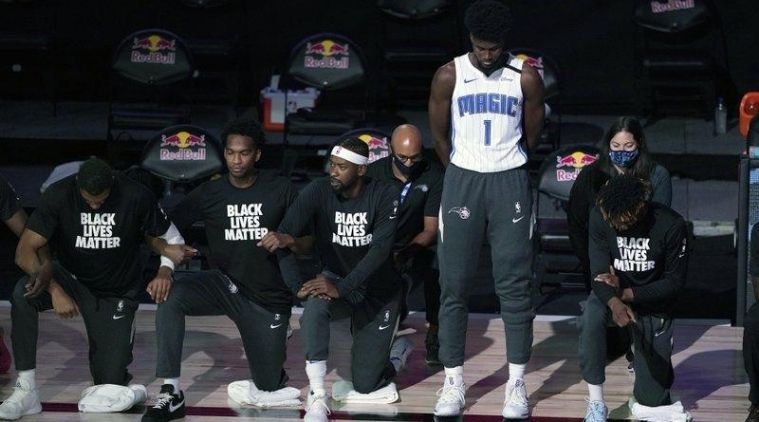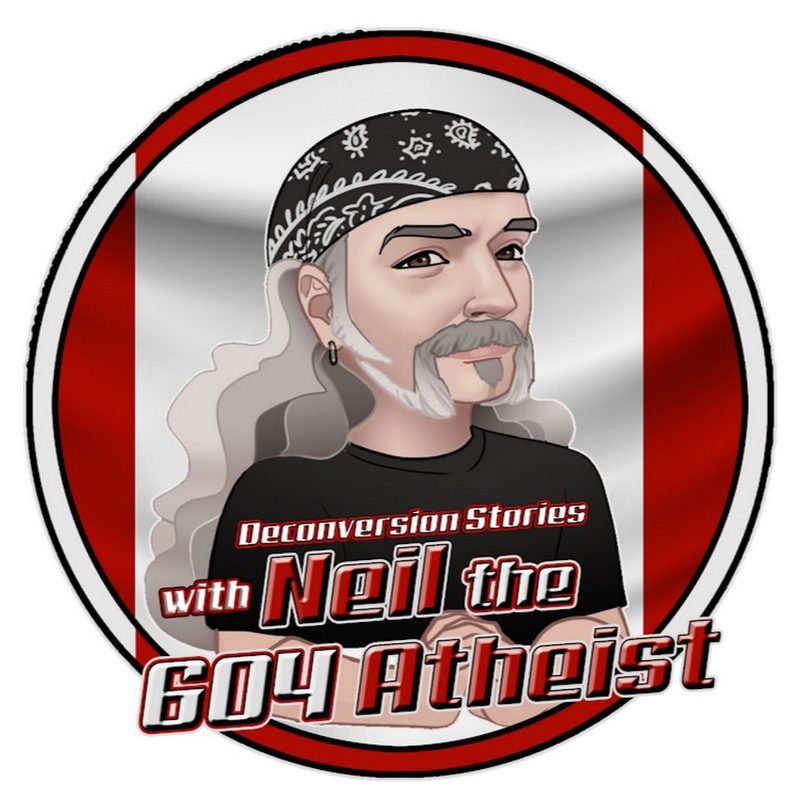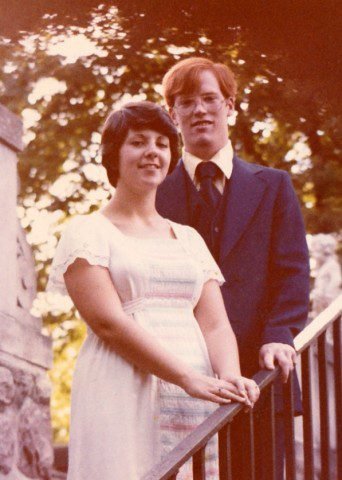
Guest post by Steven S.
Many people do not think I am a fan of sports. That could not be further from the truth. My dad is a scout for high school basketball. His love and passion for the game influenced me tremendously. I love all kinds of basketball. I think it is the most graceful and progressive sport out there. That opinion was reinforced when the NBA recently resumed games this past week. The latitude the NBA allowed the players to highlight their messages and causes, especially as it relates to the Black Lives Matter movement, was moving and inspiring. The first game back, all the players kneeled in solidarity. It was enough to move me to tears.
Then something happened. One of the players in the next game: a young man from the Orlando Magic named Johnathan Isaac refused to kneel for the anthem or wear a jersey with a social justice message printed on it. The media outlets wondered, what could make Isaac break so drastically from the pervading sentiment of the league? What was his reasoning? Was his motive a well-thought, finely-nuanced work? Most folks withheld their criticism until Isaac had a chance to speak.
When Isaac did eventually speak, here is what he said:
For me Black lives are supported through the gospel. All lives are supported through the gospel. We all have things that we do wrong and sometimes it gets to a place that we’re pointing fingers at who’s wrong is worst. Or who’s wrong is seen, so I feel like the Bible tells us that we all fall short of God’s glory. That will help bring us closer together and get past skin color. And get past anything that’s on the surface and doesn’t really get into the hearts or men and women.
What does this sound like if not a religiously-influenced and misguided attempt to evangelize and make a stand for Jesus? What does it sound like if not a paean to the “All Lives Matter” crowd of Evangelicals? What does this sound like but an equivocation of the grievous sins of White supremacy and privilege, police brutality, slavery, racism, and discrimination with sins like adultery and not going to church on the Lord’s Day?
How could something like this go so wrong? Of course, Mr. Isaac has the right to believe and act as he wants. I will defend his right to act as he did, but I will dissect the religious toxicity behind it.
For too long, Christianity, especially Evangelicalism, has been used as a shield from the wrongdoings our society has committed in the past and present. Isaac’s actions fit into that larger picture. All sins are equal in the eyes of God, now that we are washed in the blood and saved. Jesus is the answer. The Gospel is the great uniter. It all seems so simple. Win enough hearts to Christ and all the ills of this world will be wiped out. It would all be so great if these beliefs, held by tens of millions, weren’t so deluded.
Our actions in the here and now matter. What happens in the here and now matters. Attempting to distract and deflect from that is what Evangelical Christianity does best. Isaac’s statement takes away from the special, critical gravitas of the here and now, placing it on a someday when every knee has bowed and every tongue has confessed. It is a very myopic worldview that extends no empathy to those of other beliefs or nonbelievers.
The whole idea that Christianity will help bring us closer together and suThe whole idea that Christianity will help bring us closer together and supersede skin color is laughable. Christianity has driven people apart for over twenty centuries. People used Christianity to justify torture, murder, and owning others as property. How someone can expect that process to not continue is beyond me. Christianity does not change, but instead amplifies the kind of person a believer already is, albeit perhaps in a milder form today than in previous centuries.
Isaac’s words effectively cast a pall over one of the most critical movements to ever spring up in our nation to lead us toward grappling with and addressing the White privilege and supremacy inherent in all of our institutions. They diminish the lives of George Floyd, Breonna Taylor, Elijah McClain, Walter Scott, Michael Brown, Philando Castile, Sandra Bland, and the many other Black lives lost to White vigilantism and police brutality.
While Mr. Isaac is undoubtedly a phenomenal basketball player, he is not so phenomenal at seeing how his actions hurt instead of help our nation heal from the tragedies White supremacy has inflicted on this country. My hope is that he educates himself with the help of his teammates on why his actions, instead of providing hope, provided a sense that he was grandstanding for Jesus. I sincerely hope Mr. Isaac can one day see how disrespectful his actions were to a movement and league that wants nothing more than for the oppressed to have the same rights as their oppressors.
Since the writing of this post, Isaac has torn his ACL and is out for the season.



